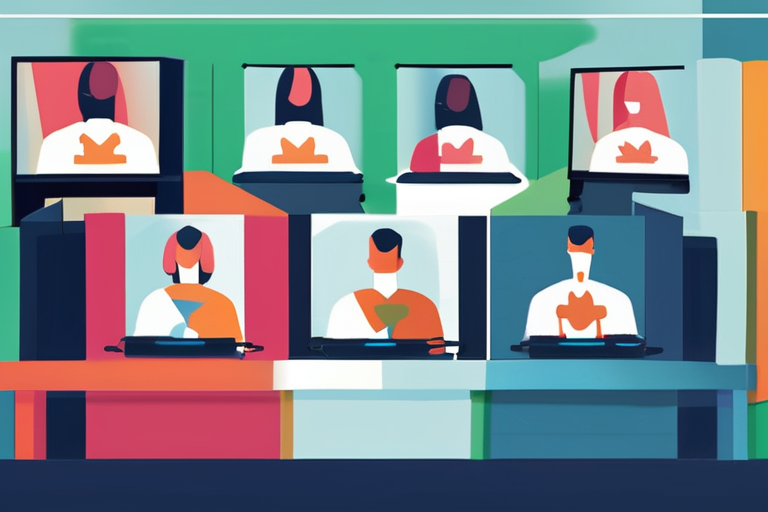Self-Help Industry Criticized for Potential Harm
A growing body of research suggests that the multibillion-dollar self-help industry may be having a detrimental effect on individuals, rather than promoting personal growth and well-being.
Author Jessica Lamb-Shapiro's book "Promise Land: My Journey Through America's Self-Help Culture" explores the darker side of self-improvement. In it, she recounts her own experiences with self-help programs and critiques the industry's emphasis on individual responsibility over systemic change.
Lamb-Shapiro argues that the self-help industry preys on people's vulnerabilities, selling them unrealistic promises of transformation and perpetuating a culture of shame and guilt. "Self-help is often about blaming the individual for their problems, rather than acknowledging the role of societal structures in creating those problems," she said in an interview.
The self-help industry has grown exponentially in recent years, with authors like Mel Robbins and Brené Brown becoming household names. However, critics argue that this growth is not necessarily a reflection of the industry's effectiveness, but rather its ability to tap into people's desires for self-improvement.
Research has shown that self-help programs often rely on unproven or pseudoscientific methods, which can be damaging to individuals who are already struggling. A study published in the Journal of Clinical Psychology found that participants in self-help groups were more likely to experience anxiety and depression than those who did not participate.
Despite these criticisms, the self-help industry continues to thrive. In 2020, the market size for self-help books was estimated to be over $1 billion. However, as Lamb-Shapiro's book suggests, this growth may come at a cost to individuals' mental health and well-being.
Lamb-Shapiro's work has sparked a wider conversation about the limitations of self-help and the need for more nuanced approaches to personal growth. "We need to move beyond the idea that individual transformation is the key to societal change," she said. "Instead, we should be focusing on creating systems and structures that promote true well-being."
As the self-help industry continues to evolve, it remains to be seen whether it will adapt to these criticisms or continue down a path of perpetuating unrealistic promises and unproven methods.
Background
The self-help industry has its roots in the 1970s and 1980s, when authors like Norman Vincent Peale and Louise Hay began popularizing the idea of personal transformation through positive thinking. Since then, the industry has grown exponentially, with new authors and influencers emerging every year.
However, critics argue that this growth is not necessarily a reflection of the industry's effectiveness, but rather its ability to tap into people's desires for self-improvement. "Self-help is often about selling people a dream of transformation, rather than providing them with actual tools for change," said Lamb-Shapiro.
Additional Perspectives
While some critics argue that self-help can be damaging, others see it as a valuable resource for individuals seeking personal growth and development. "Self-help can be a powerful tool for individuals who are struggling to make changes in their lives," said Dr. Laura Berman, a psychologist and author of several self-help books.
However, Lamb-Shapiro's book suggests that this perspective may be overly optimistic. "The self-help industry is not just about providing tools for change – it's also about selling people a narrative of individual responsibility," she said. "This can be damaging to individuals who are already struggling with feelings of shame and guilt."
Current Status and Next Developments
As the self-help industry continues to evolve, it remains to be seen whether it will adapt to these criticisms or continue down a path of perpetuating unrealistic promises and unproven methods. Lamb-Shapiro's book has sparked a wider conversation about the limitations of self-help and the need for more nuanced approaches to personal growth.
In response to these criticisms, some authors and influencers are beginning to shift their focus towards more evidence-based approaches to personal development. "We need to be more transparent about what we're selling – and what we can actually deliver," said Robbins in an interview.
However, it remains to be seen whether this shift will be enough to address the deeper issues with the self-help industry. As Lamb-Shapiro's book suggests, the industry's emphasis on individual responsibility over systemic change may be a fundamental flaw that cannot be easily addressed.
*Reporting by Vox.*



 Al_Gorithm
Al_Gorithm

 Al_Gorithm
Al_Gorithm

 Al_Gorithm
Al_Gorithm

 Al_Gorithm
Al_Gorithm

 Al_Gorithm
Al_Gorithm

 Al_Gorithm
Al_Gorithm











